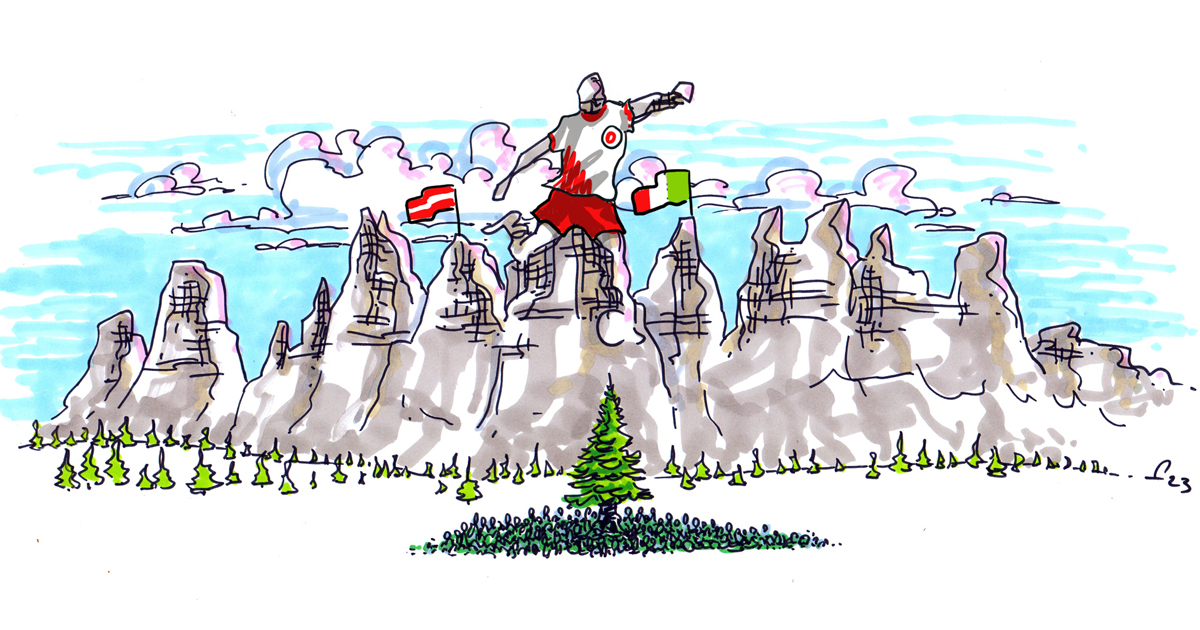In an earlier Sunday Column, we spent a lot of time musing about the effect of “brand” on the sports assets of Juventus and Ferrari. How the roots of a brand, in this case Gianni Agnelli, are often unseen and, I would argue, underestimated.
Here it is.
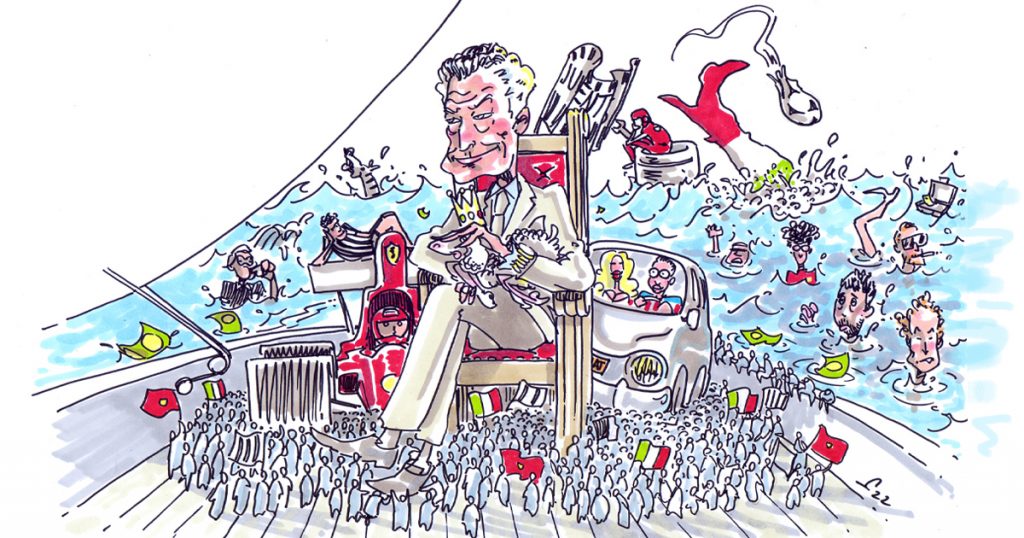
Today’s Column is part 2 of my own search for a reason to believe in sport, beyond a role as simple lifestyle and entertainment content. I want to find a reason.
We see the new buyer of Chelsea acting like a Kardashian sister on Rodeo Drive, buying anything that moves with no obvious intelligence or class; we see Manchester United, fought over by rich Arabs like a rare brand accessory to acquire…
You end up asking yourself, what really is BRAND in European soccer? I mean sustainable brand value? What is the end game of all this?
Modern fans, especially remote and digital, have fallen in love with average brand clubs buying big players, winning, and becoming popular.
The Chelseas, PSGs of life. (I’m not going to include Man City, because they have decent heritage.)
Chelsea and PSG were never big teams. They were marginal poncy outfits, of a capital city, never at the top table of winners. In the last years, they have been taken and financially doped, like a Ben Johnson in Seoul. Their brands are thus, IMHO, without roots, precarious, dependant on a continual diet of big names and winning. You take those away and, maybe, they revert to mean (i.e. irrelevance). Chelsea and PSG are NOT proper football teams. I’m sorry, but they aren’t.
They are recently-pumped entertainment and lifestyle brands that, like any logo, can decay, if not fed constantly.
Once you start thinking like this, everything that is happening in football starts to make more sense. Why does the revival in Arsenal coincide with the arrival of the most community-connecting anthem you could imagine? North London Forever.
Why does the community of Glasgow Celtic strengthen, when it should be dwindling in the tundra of Scottish football? The brands of Arsenal, and Celtic FC are arguably stronger than they have ever been with their community. It means more. The Guardian made a fine attempt at explaining this in Glasgow through this article.
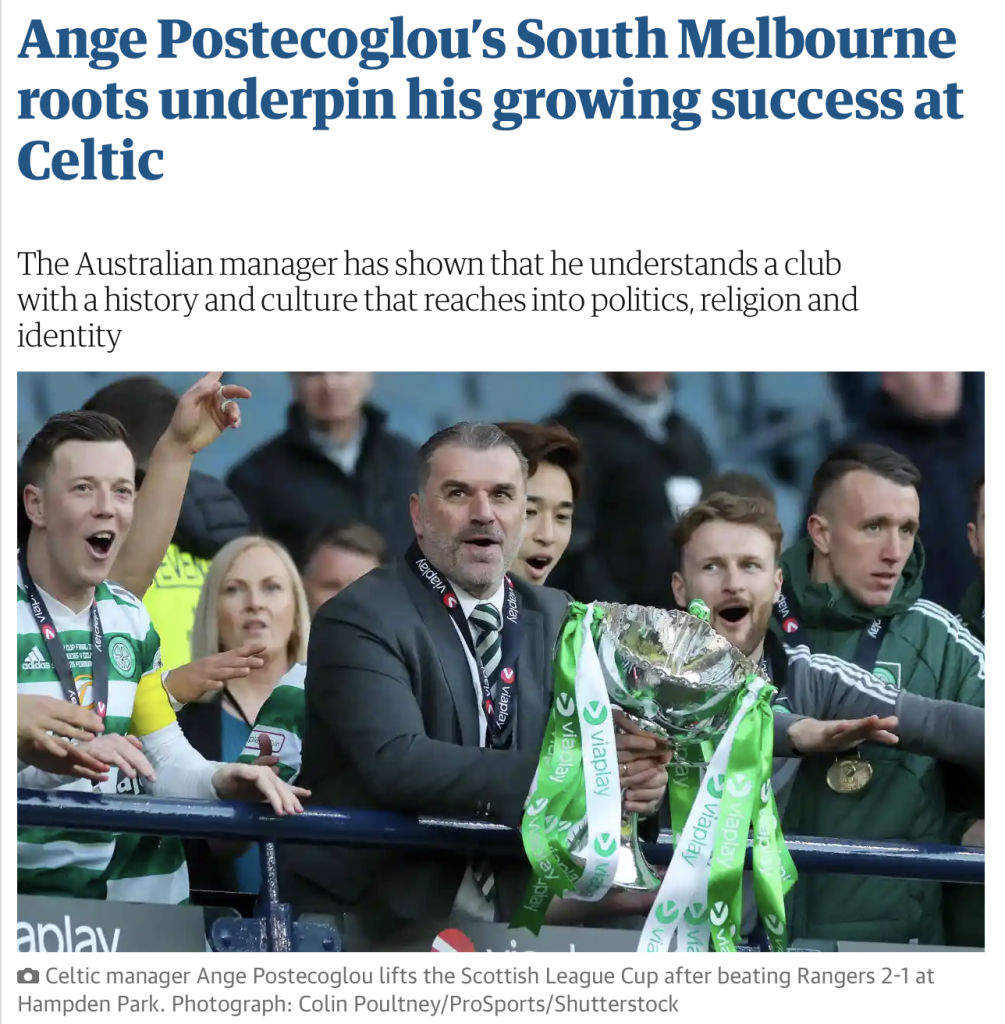
Celtic has long since progressed beyond being a simple football club for many within the city and beyond. It’s a club with a history and culture that reaches into politics, religion and identity. To millions, it’s just as much a part of their family as any other relation. It is this – and understanding and engaging with it – where Aussie coach Postecoglou has perhaps achieved most in Glasgow.
As much as I am the manager of this football club and I am really passionate about it, I am not invested in the same way our supporters are. I can’t be, because they have got generations. It would be insulting for me to say it means the same to me as them, but I bear the burden of that responsibility.
Football roots are the brand. You can’t buy that! It won’t last without roots.
So, when you see bids for another such club, Manchester United, from people who don’t get it, the Force is NOT in balance. As my buddy Grant Williams says, “Radcliffe is the natural owner of United”.
All of this philosophy is central to what will unfold with the Arab world’s ambitions in sport. They have the capital sport desperately needs, but when is the moment of saying “enough is enough; you don’t respect the roots“? Messi in a wind cheater lifting the Cup, hiding his strip?
With all this as prologue, I’d like to talk about the F.C. Südtirol football team, currently pushing for promotion to Serie A in Italy.
Good for them, you say. But what is special about that? I see no connection to “brand purpose” and roots there.
The answer is the soil of their mountains and valleys.
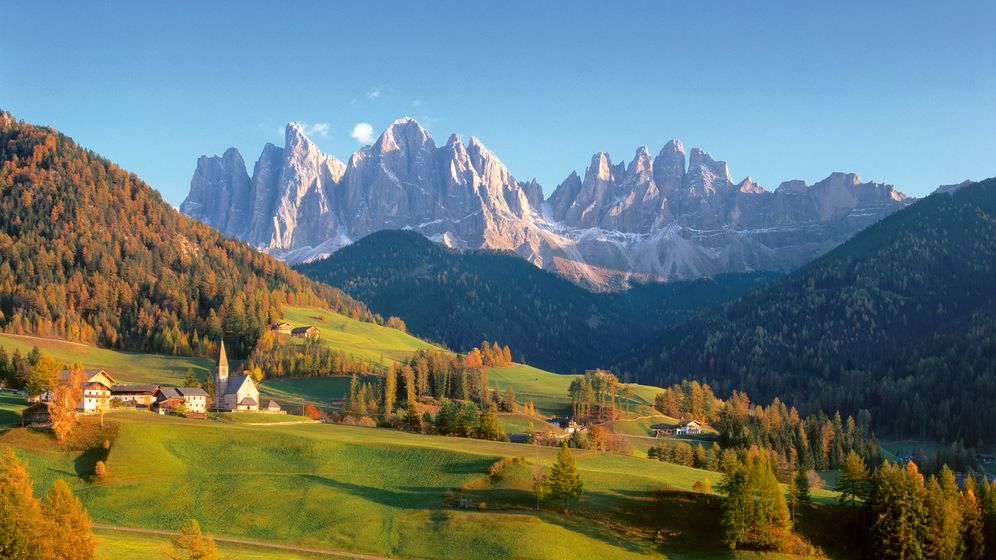
This land is your land and this land is my land.
Copyright: Woody Guthrie.
These days, tragically, our TV screens are full of questions of land, and to whom it belongs. Donbass in Ukraine, but also Palestine, Ulster, Taiwan. A school history qualification, at least in my generation, will have given you also Sudetenland and Alsace-Lorraine.
Note: I have zero intention to talk about wars. Mr Williams and his guests do this extremely well. Follow him. His most recent podcast with Simon Hunt is stuff you do not hear on mainstream media. World class analysis.
Südtirol is another example, having been split up and passed between kingdoms and empires over the centuries. It lies on the frontiers of Austria and Italy, with Bolzano as the most famous city. It is part of Italy today.
At the start of WW1, however, South Tirol (known in Italian as Alto Adige) was part of Austria. The Allies, as you do in war, casually promised the whole region to Italy, as an incentive for them to enter the war on the side of Britain and France et al. That was a deal Italy took!
P.S. The world has always been very hardball. Don’t ever forget that deals like this happen every day in business and politics.
If you don’t know who at the table is being screwed, it’s you!
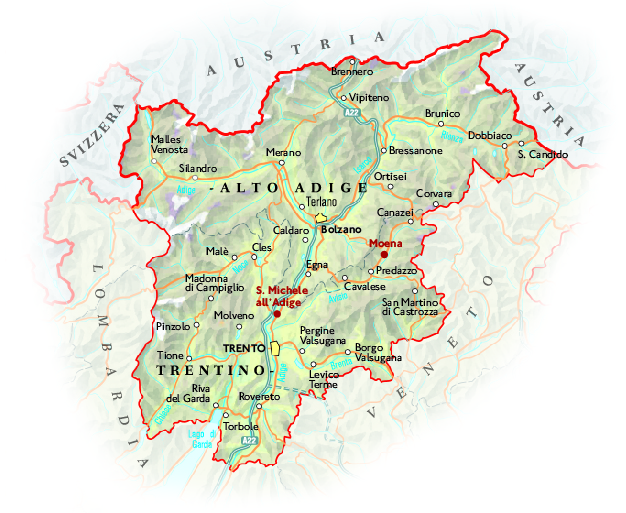
Mussolini doubled down on all that stuff; the German language was banished in Südtirol, German teaching forbidden, and German newspapers were censored. He also encouraged resettlement from other Italian regions. When Adolf Hitler also got going soon after, the dictators together then agreed that the German-speaking population be transferred back to Germany or dispersed around Italy. This resulted in the wrenching division of South Tyrolese families. The usual tragic playbook for territories that get passed around in conflicts. All sounds very familiar, doesn’t it? The idea that you can draw new borders with no long-term pain. It never goes away.
Note: Again, I personally have no intention on making value judgements here as to where Südtirol should sit. Others did exactly that though. And after WW2, the Allies decided that the province would remain a part of Italy, under the condition that the German-speaking population be granted a significant level of self-government.
Not everyone was happy. Far from it. Terrorism similar to Northern Ireland grew in the 50s and 60s, and people died. Scars remain and grudges are borne. The issue was eventually settled legally in courts of The Hague, with the province receiving greater autonomy within Italy, and Austria not interfering in South Tyrol’s internal affairs.
Here endeth the history lesson.
Today, Südtirol is a stable, prosperous, happy, devolved government and mini state. It is a wonderful place, home to many of our dearest friends. A rich region, full of talented and hard working people.
But, after all this forcing of culture and nationality over the years, it remains a strange part of Italy, where most people still speak only German, or Austrian dialect. This diversity has caused many of its inhabitants to feel neither Italian, nor Austrian, or German. What they have pride in, is their way of doing things. Properly. They love to be seen as efficient, well run, and competent.
They succeed, almost as “ fuck y’all” to everyone who has messed them about for centuries.
Maybe now, however, they are going to puff their chest out nationally. On the biggest cultural stage. Putting aside the old Austria/Italy resentments, uniting the cultures and languages, and winning at football.
30 years ago, a new football club was started, F.C. Südtirol, based in Bolzano. The club is structured in a joint venture, co-owned by partners and private companies, similar to the ownership of Bayern Munich. The management has implemented a salary cap of €100,000 per player and developed state-of-the-art training facilities. The ownership and culture is very local “Tirolese” and they do things right. One of the club’s strengths is its commitment to local players and the Südtirol youth academy. They have blown away all the old teams that used to be around the Bolzano area. Taken their fans, over a generation. That, in itself, is rather interesting,
Football and sport has this power. But don’t think I’m going soft and this is going to be a celebration of romantic community football.
This, instead, wants to be a cold professional article about fresh brave thinking, serious ownership and management, applied to sport. And how all that can work, if it has the right roots.
Community football has a future, but not with today’s inertia of the status quo, and sacred cows.
Let’s look at the UK.
The UK has 130 odd professional teams. Most of them, by refusing to evolve, are dying a death of a thousand cuts. Most people think a government regulator will give them a bigger subsidy to be able to survive. Completely wrong thinking. Fig leaves for the deluded.
Look, community football needs a “why” to survive, a purpose. Brand values. Not a handout.
The Kingdom of Fife, in Scotland, has 4 pro teams: East Fife, Raith Rovers, Dunfermline, and Kelty Hearts. I’m guessing 350,000 people live in Fife. Combined, the average attendance of these 4 clubs is 7,500. Combined. It’s a nonsense of nostalgic hope.
Wouldn’t it make more sense to rebrand football in the Kingdom as Royal Fife FC? Give the sport some kind of future?
I personally barely got out alive from Scotland for that kind of thinking. Prophets in their own land and all that.
The only chance community football has, is to be fully committed to the territory, and take its players from as close to the tree as possible. F.C. Südtirol does exactly that. It also embraces the Italian way of playing calcio, conceding just 9 goals across 38 league matches last year. LMAO. More Italian than that? But it’s all brand, isn’t it?
Encouragingly, this also is where Roberto Baggio thinks the Italian footballing Renaissance need to come from. Remember, Italy haven’t qualified for the last 2 World Cups. Their teams, even the big ones, are full of journeymen foreigners (promoted by their agents, who often are doing brown envelope deals with sporting directors).
But the talents ARE still there. Baggio said recently that he sees great players in the lower levels of Italian football. “Why are they only playing at this level” he asks himself? “Give them air to play and watch them grow. Don’t scout TransferMarket for Johnny Nobody from overseas”.
That’s exactly the F.C. Südtirol‘s game-plan. All Italians, most from their own youth system, all playing as a symbol of their region, also playing the old Italian way of defence first. No one getting paid fortunes. Sounds compelling, doesn’t it? That is a brand with roots. La scuola italiana. And it’s working.
It is an incredible success story, that I believe points the way for the long tail of football everywhere.
This week they had an away game in Benevento, near Naples, 850km distant for a midweek game on TV. One guy went. Just one. But he represented the region in such a way, that the team lauded him publicly at the end. Showering him with tops and momentoes. A very good vibe.
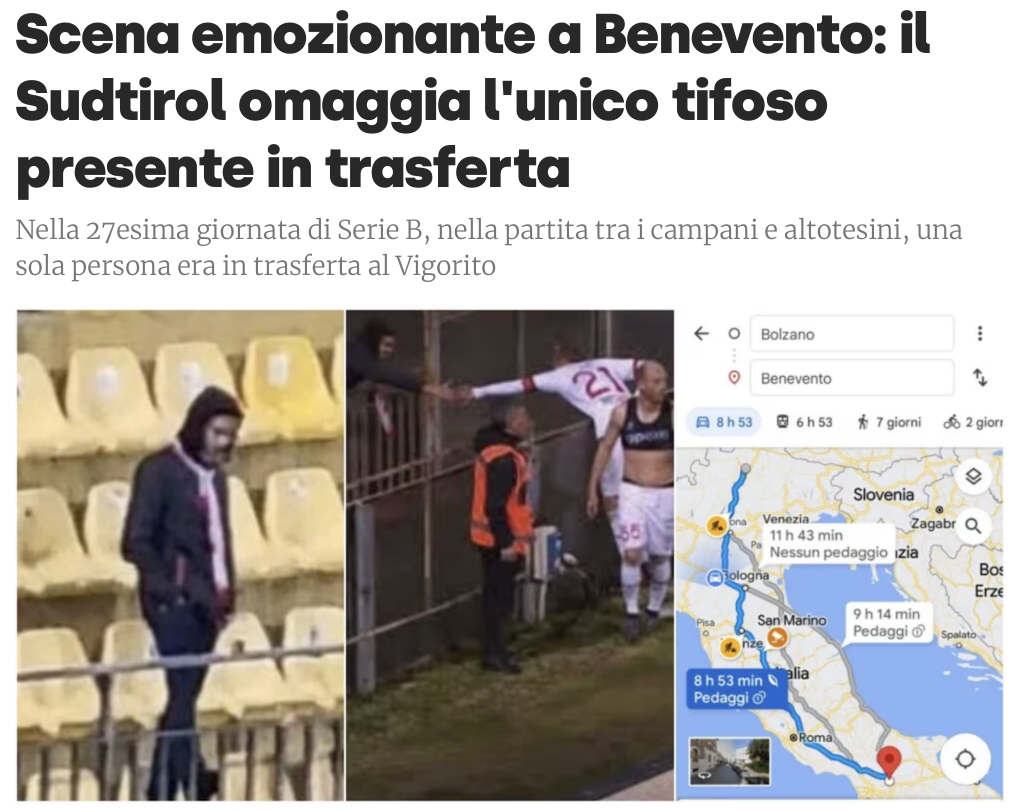
So my conclusion is this.
If your plan in football is to take any club, buy your way to success on the back of stupid spending, glory hunters and tourist fans, be careful.
Roots and meaning are important. Connection to a community is important.
Conversely, merely as lifestyle brands you will always blow in the wind. Like a Pierre Cardin, Studio 54, Bar Six chocolate, Oldsmobile. Here today, gone tomorrow.
Arsenal, Liverpool, Celtic, Ajax, United, will always be there. Always. And I’d like to hope Südtirol will get to SerieA and show a possible future for the broken industry of football in Italy.
Listen to our “Are you not entertained?” sports management podcast here.
To find out what we do in change management, have a look here.
For our C-suite management services, read here.
Here you can know more about our content development work.
Discover our Corporate Learning service.
Get to know more our “Sport Summit Como” yearly sports management event here.
If you are interested in our own story, check us out here.


